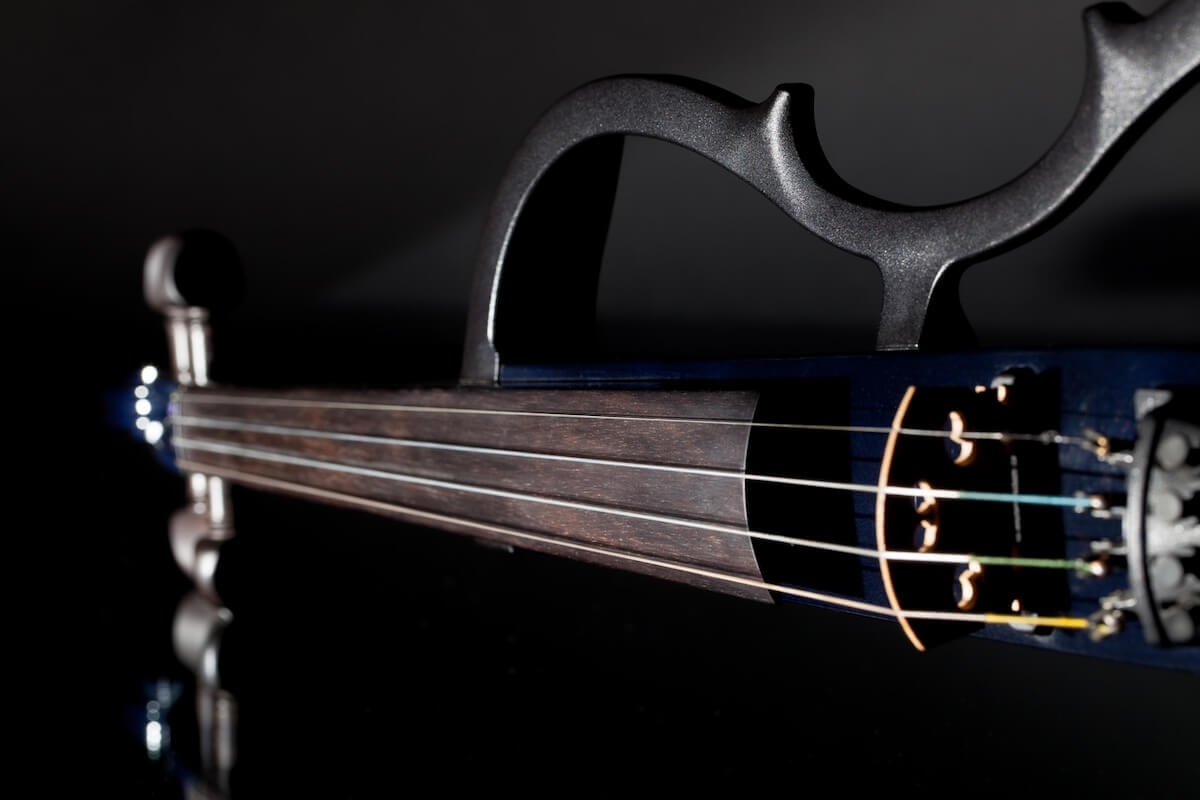Ever wondered what an electric violin is and how it compares to its traditional acoustic counterpart? Whether you’re a classical violinist looking to expand your skillset or a music enthusiast eager to explore new sounds, here’s what you need to know about electric violins.
What Is an Electric Violin?
An electric violin is a violin designed to be amplified electronically. They are used in a wide range of genres, including jazz, rock, electronic, and even classical.
Acoustic violins rely on the natural resonance of their hollow, wooden bodies to produce sound. Electric violins, on the other hand, have solid bodies. They use pickups and electronic components like soundboxes to transform string vibrations into electrical signals. These electrical signals can be amplified and processed through speakers or other audio equipment.
Some hollow-bodied violins may be fitted with an electric pickup. These instruments are usually called amplified or electro-acoustic violins instead of electric violins.
What Do Electric Violins Sound Like?
Just like an electric guitar doesn’t sound much like an acoustic one, electric violins differ greatly in sound from classical ones. While traditional acoustic violins create rich, warm tones, electric violins tend to sound more synthetic and, well, electric.
Acoustic violins allow nuance and subtlety based on bow speed, pressure, and placement. This can be lost or unnoticeable with an electric violin. However, electrical violins can be more versatile. They allow artists to experiment with new sounds and effects you can’t create with acoustic violins.
Are Electric Violin Strings the Same as Acoustic?
Yes! Electric and acoustic violins can use the same strings. But the strings you place on an acoustic violin may alter its sound, while strings aren’t likely to impact the sound your electric violin makes.
Do You Need a Special Bow for Electric Violins?
Nope. You can use your normal wood or carbon fiber violin bow with your electric violin. Many artists decide to purchase separate bows for their acoustic and electric violins to keep the bow with the instrument.
Some bows just happen to work better with the electric instruments, though. For example, the CodaBow Joule features a center-tip balance, medium-heavy weight, moderate action, and medium-stiff stiffness. This combination makes it ideal for electric violins and extended-range instruments.
Do You Need Rosin for an Electric Violin?
Yes! Properly rosining your bow is essential, no matter if you play an acoustic or electric instrument. You need the rosin to help create the friction necessary to create string vibration.
Unlike an acoustic violin, you likely won’t need to routinely take your instrument to a luthier for service. Removing rosin residue, properly storing your electric violin, and washing your hands before playing should be enough to care for it.
Are Electric Violins Silent?
Yes and no. Many players consider picking up the electric violin because you can plug headphones into it. The headphones allow you to practice the same parts over and over without bothering housemates or neighbors.
However, while electric violins don’t produce the same noise level as acoustic violins, the strings can still make sound. This sound is just not amplified by a hollow body.
Are Electric Violins Good for Beginners?
If you are just entering the world of violin playing, starting with an acoustic violin is often recommended. So much of violin learning and playing is focused on tone production, which is harder to get intimate with when playing on an electric violin. Plus, most traditional and classical pieces were written with the tone production of acoustic violins in mind.
That doesn’t mean you have to give up your dreams of playing the electric violin, though. You can start with the acoustic violin and add the electric one once you become comfortable playing. You play the electronic violin using your foundation of basics and techniques to explore new styles and effects.
Find the Perfect Bow for Your Electric Violin
Thinking about picking up the electric violin? You’ll need a great bow to go along with it. The CodaBow Joule has a robust and dazzling tone perfect for electric instruments. Try it at home today!



Stay Connected